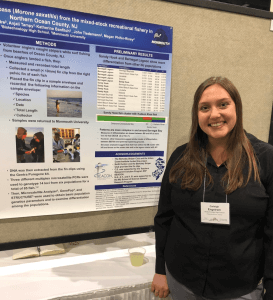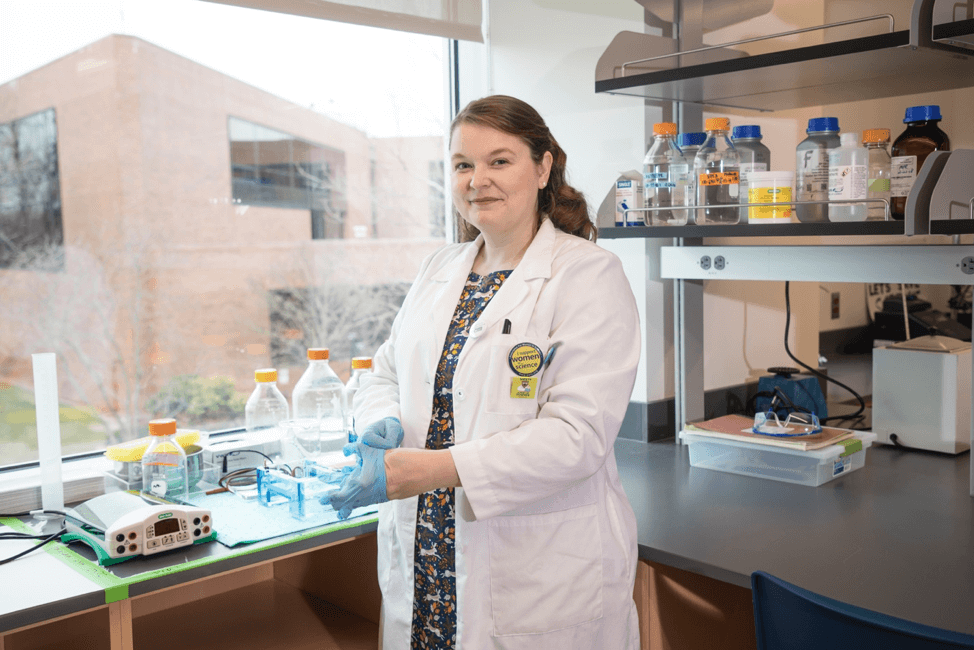Megan Phifer-Rixey, Ph.D., an evolutionary biologist and assistant professor in the biology department, along with University alumna Chelsea Barreto ’14, were invited to present as part of the Evolution Symposium at the 2019 National Association of Biology Teachers (NABT) Conference held Nov. 14-17 in Chicago. Every year, biology educators from all over the country come together at the conference to learn about cutting edge teaching practices.
This year, Phifer-Rixey presented her research, which included a collaboration with Assistant Dean of the School of Science John Tiedemann, to a crowd of high school biology teachers. Her talk focused on the use of genetic markers to identify the source populations of migratory striped bass.
“Striped bass are a valuable sport fishery here in New Jersey,” Phifer-Rixey said. “The fish caught here, though, come from other places. The goal of this project is to use genetic markers to help us figure out those spawning grounds so we can better inform management.”
Phifer-Rixey described the striped bass research project as a true collaboration that continues to give back to the community.
“John Tiedemann started the project and brought in local fisherman who supported the work and contributed fin clips,” Phifer-Rixey added. “I came on board to help with the genetics and got together a great group of undergraduates to help through our summer research project. Now, the project is giving back—including through our recent graduates who are teachers in the community and generating lesson plans that can be used in schools everywhere.”
At the symposium, Barreto, now a teacher at Summit High School in Summit, New Jersey, presented a complementary classroom activity—”Fishy Origins – Finding Out Where Fish Come From”—based on her experience with Phifer-Rixey in the Teacher Revolution Program this past summer.

Sponsored by the National Science Foundation Beacon Center, the Teacher Revolution Program places high school biology teachers in active evolutionary biology labs to give them research experience they can take back to their classrooms. In addition, teachers and research mentors work together to incorporate their research into a classroom activity that helps students learn how to analyze and interpret data. Phifer-Rixey was selected as a research mentor for the program for the last two summers.
Another recent graduate, Carleigh Engstrom ’15, who now teaches at Biotechnology High School in Monmouth County, participated in the program in 2018. She also contributed to the classroom activity and presented her work with the program earlier this summer at the 2019 Evolution Meeting in Rhode Island.
To learn more about the NABT, visit nabt.org.

